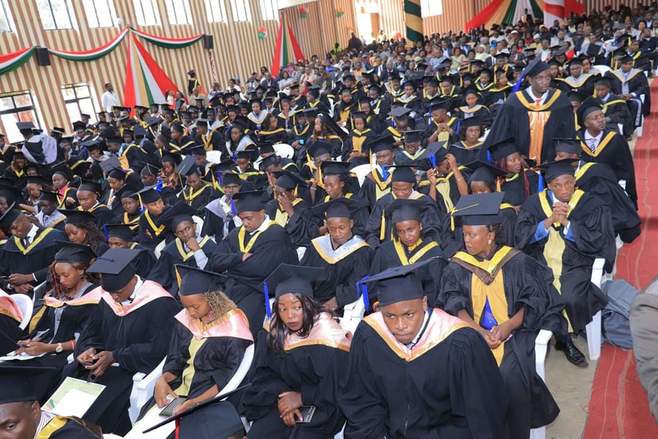×
The Standard e-Paper
Join Thousands Daily

Dedan University graduands at a past graduation ceremony. [File, Standard]
The Commission for University Education (CUE) produced a very well done document titled 'University Statistics 2016/2017'. Depending on what you want out of the document, one gets many insights on the performance of universities, student career choices and specialisation, staffing in both public and private universities, and major challenges and opportunities for future academic development.







